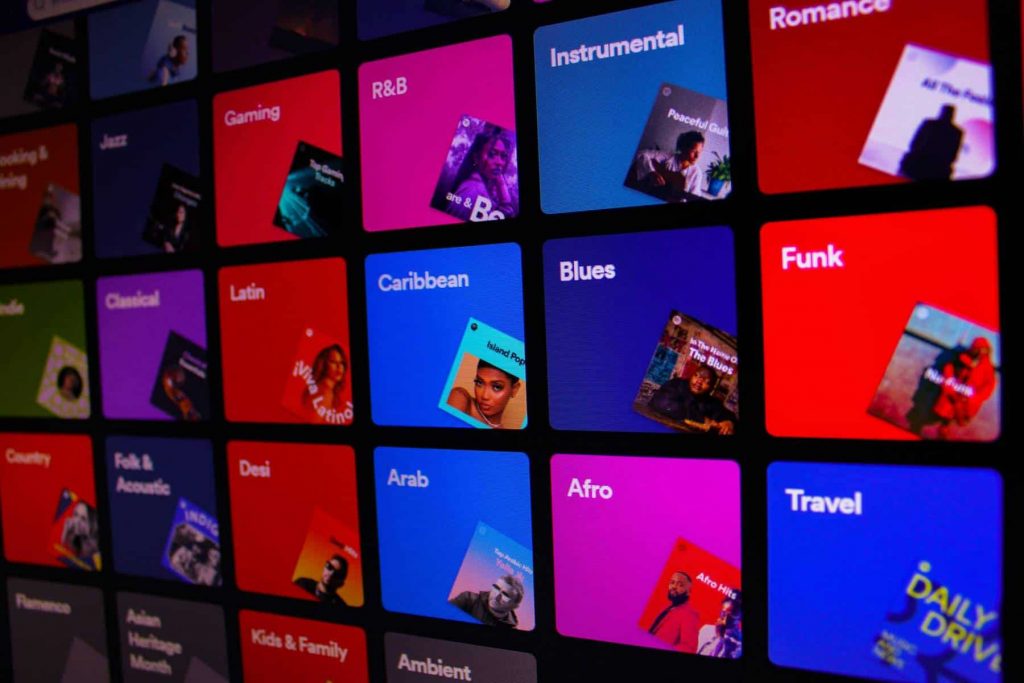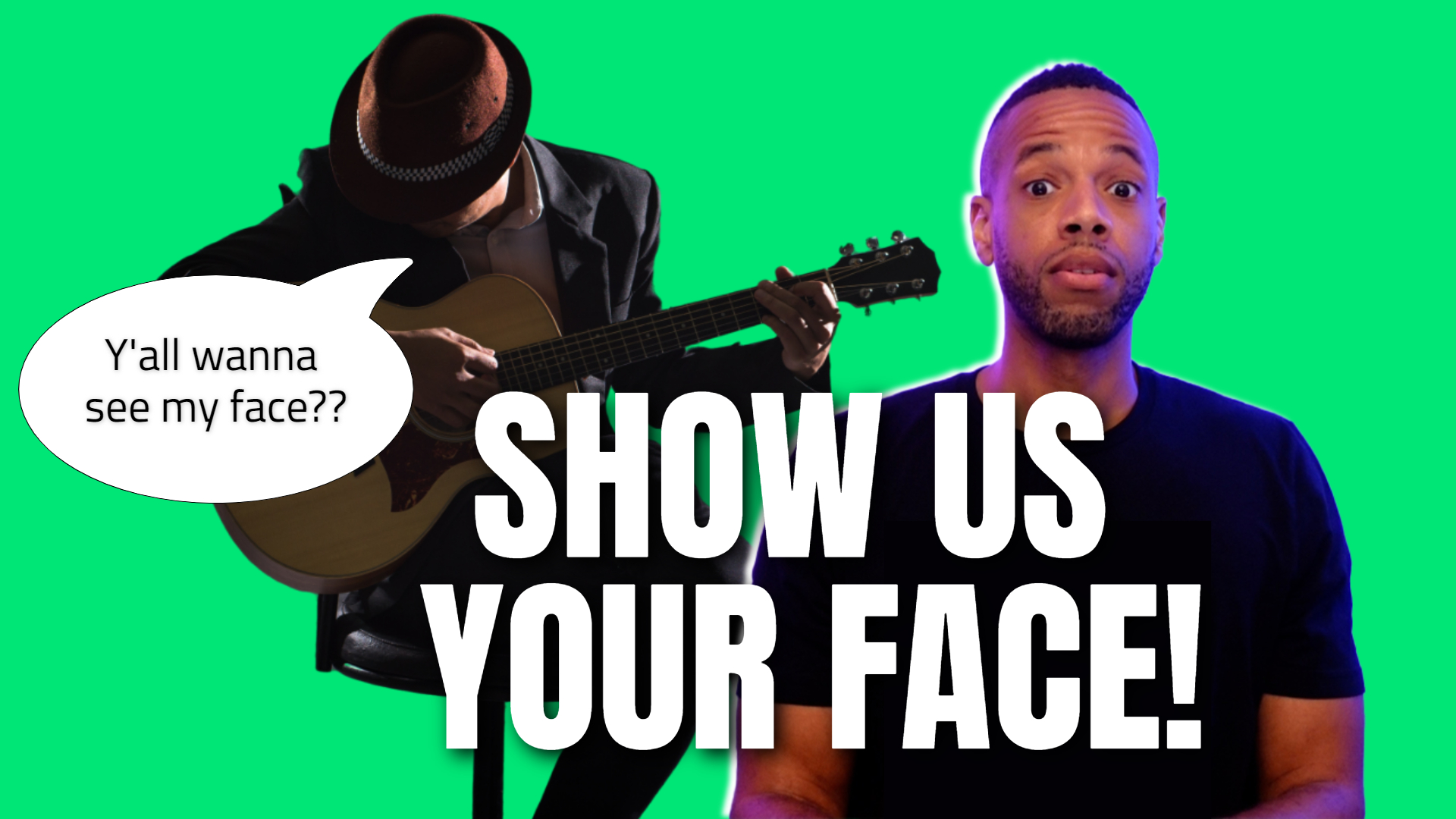The Complete List of Music Genres (Clear Definitions & Examples)

*This article may contain links to affiliate products & services. We have reviewed these services to try and ensure the highest quality recommendations*
Written by Ramsey Brown.
A music genre is a classification system that groups musical works into different categories to describe its form, style, cultural influence, among multiple other characteristics. Because of the artistic nature of music, genres are often subjective and controversial, creating many overlapping genres.
With so much music being produced and experimented with over time, there has been a flood of new crossover genres within the past few decades — these are better known as sub-genres.
Importance of Understanding Music Genres
Now, you may start to read this and think that I am pointing out the obvious, and that genres are just an evident label to describe different types of music. However, it’s important to understand the true depth and importance behind music genres so you can effectively communicate your music to the masses.
For instance, telling someone you are in a rock band is not nearly impactful as telling someone you are in a punk-rock band. By including punk in the description, you are specifying your unique sound and style while differentiating yourself from others whose music falls into the generalized rock category.
Genres are a key to unlocking your music niche, building your fanbase, and navigating your overall music career. So, they shouldn’t be thought of as just another meaningless label.
With that said, everyone knows the main music genres that we all hear today. But there are hundreds, if not thousands of other genres and sub-genres that you may not know about. Through diving into the different types of musical styles and categories, you may be surprised to find genre that represents your own style of music.
The Complete List of Music Genres
We’ve compiled a complete list of music genres that we are going to share with you throughout this article. We’ll touch on the definition of each, discussing how the genre originated and providing examples of the music. Let’s take a look..
Pop Music
Pop is a genre of popular music that originated in its modern form during the mid-1950s in the United States and the United Kingdom. The terms popular music and pop music are often used interchangeably, although the former describes all music that is popular and includes many disparate styles. Songs that fall into the pop genre are typically short to medium-length with repeated choruses, melodic tunes, and hooks.
Pop Sub-Genres:
Baroque Pop • Country Pop • Contemporary R&B • Cowboy Pop • Dancehall Pop • Electropop •emo Pop • Folk-Pop • Hip-Pop • Indie Pop • Pop Punk • Pop Rap • Ambient Pop • Pop Rock • Power Pop • Psychedelic Pop • Space Age Pop • Worldbeat • K Pop
Rock Music
A genre of popular music that originated as "rock and roll" in the United States in the 1950s, and developed into a range of different styles in the 1960s and later. Compared to pop music, rock places a higher degree of emphasis on musicianship, live performance, and an ideology of authenticity.
Rock Sub-Genres:
Adult Alternative • American Rock • Arena Rock • Blues-Rock • British Invasion • Death Metal/Black Metal • Glam Rock • Hair Metal • Hard Rock ! Metal • Jam Bands • Prog-Rock/Art Rock • Psychedelic • Rock & Roll • Rockabilly • Roots Rock • Singer/Songwriter • Classic Rock • Southern Rock
Hip-Hop/Rap Music
Hip Hop or Rap music was developed by African American and Latino Americans in the late 1970s. It consists of stylized rhythmic music with a rhyming speech. It influenced the Hip Hop culture, which led to the formation of breakdancing, graffiti, and special fashion styles.
Hip-Hop/Rap Subgenres:
Alternative Rap • Bounce • Dirty South • East Coast Rap • Gangsta Rap • Hardcore Rap • Hip-Hop • Latin Rap • Old School Rap • Rap • Underground Rap • West Coast Rap • Mumble Rap
R&B Music
A genre of popular African-American music that originated in the 1940s as urbane, rocking, jazz based music with a heavy, insistent beat. Lyrics focus heavily on the themes of triumphs and failures in terms of relationships, freedom, economics, aspirations, etc.
R&B Sub-Genres:
Contemporary R&B • Disco • Doo Wop • Funk • Motown • Neo-Soul • Quiet Storm • Soul
Reggae Music
A music genre that originated in Jamaica in the late 1960s, strongly influenced by traditional mento as well as American jazz and rhythm and blues, instantly recognizable from the counterpoint between the bass and drum downbeat, and the offbeat rhythm section.
Reggae Sub-Genres:
Dancehall • Dub • Roots Reggae • Ska • Mento • Reggaestep • Gospel Reggae • Contemporary Reggae
Country Music
A genre of United States popular music with origins in folk, Blues and Western music, often consisting of ballads and dance tunes with generally simple forms and harmonies accompanied by mostly string instruments such as banjos, electric and acoustic guitars, dobros, and fiddles as well as harmonicas.
Country Sub-Genres:
Alternative Country • Americana • Bluegrass • Contemporary Bluegrass • Contemporary Country • Country Gospel • Honky Tonk • Outlaw Country • Traditional Bluegrass • Traditional Country • Urban Cowboy
Folk Music
Folk music is a music genre that includes traditional folk music and the contemporary genre that evolved from the former during the 20th-century folk revival. Some types of folk music may be called world music. It’s sound typically utilizes traditional, acoustic instruments.
Folk Sub-Genres:
Folk metal • Folk rock • Neo-Folk • Anti-folk • Indie Folk • Folk Punk • Contemporary Folk • Progressive Folk • Folk Country • Psychedelic Folk • Americana • Skiffle • Ballads
Jazz Music
With roots in West African culture, Jazz originated in the African American communities of New Orleans in Louisiana. It was recognized as the musical expression that relates to the Roaring 20s and involved complex chords, swing, and blue notes, in addition to lots of improvisations.
Jazz Sub-Genres:
Acid Jazz • Avant-Garde Jazz • Big Band • Blue Note • Contemporary Jazz • Easy Listening • Crossover Jazz • Dixieland • Ethio-Jazz Fusion • Hard Bop • Latin Jazz • Mainstream Jazz • Ragtime • Smooth Jazz • Trad Jazz
Classical Music
Art music produced or rooted in the traditions of Western music, including both liturgical and secular music, over the broad span of time from roughly the 11th century to the present day.
Classical Sub-Genres:
Avant-Garde • Baroque • Chamber Music • Chant • Choral • Classical Crossover • Early Music • High Classical • Impressionist • Medieval • Minimalism • Modern Composition • Opera • Orchestral • Renaissance • Romantic • Wedding Music
Blues Music
Blues is a music genre and musical form which was originated in the Deep South of the United States around the 1860s by African-Americans from roots in African-American work songs and spirituals. Blues incorporated spirituals, work songs, field hollers, shouts, chants, and rhymed simple narrative ballads
Blues Sub-Genres:
Acoustic Blues • Chicago Blues • Classic Blues • Contemporary Blues • Country Blues • Delta Blues • Electric Blues
Electronic Music
A large set of predominantly popular and dance genres in which synthesizers and other electronic instruments are the primary sources of sound. Also known as electronic dance music, or EDM.
Electronic Sub-Genres:
Breakbeat • Dubstep • Exercise • Garage • Hardcore • Hard Dance • Hi-NRG / Eurodance • House • Jackin House • Jungle • Drum N Bass • Techno • Trance
Children's Music
Music performed for children, often designed to provide an entertaining means of teaching about cultures, good behavior, facts, and skills.
Children’s Music Sub-Genres:
Lullabies • Sing-Along • Stories
Christian Music
Music that has been written to express either personal or a communal belief regarding Christian life and faith. Its forms vary widely across the world, according to culture and social context.
Christian Sub-Genres:
CCM • Christian Metal • Christian Pop • Christian Rap • Christian Rock • Classic Christian • Contemporary Gospel • Gospel • Christian & Gospel • Praise & Worship • Qawwali • Southern Gospel • Traditional Gospel
Latino Music
Latino music is an catch-all arbitrary category for various styles of music from Latin America, Spain, Portugal, and the United States inspired by older Latin American, Spanish and Portuguese music genres, as well as music sung in the Spanish or Portuguese language.
Latino Sub-Genres:
Alternativo & Rock Latino • Baladas y Boleros • Brazilian • Contemporary Latin • Latin Jazz • Pop Latino • Raíces • Reggaeton y Hip-Hop • Regional Mexicano • Salsa • Tropical • Bachata • Rumba • Tango
Alternative Music
Music that is produced by performers who are outside the musical mainstream, that is typically regarded as more eclectic, original, or challenging than most popular music
Alternative Sub-Genres:
Alternative Rock • College Rock • Experimental Rock • Goth Rock • Grunge • Hardcore Punk • Hard Rock • Indie Rock • New Wave • Progressive Rock • Punk • Shoegaze • Steampunk
New Age Music
A genre of music intended to create artistic inspiration, relaxation, and optimism used by listeners for yoga, massage, meditation, and reading as a method of stress management or to create a peaceful atmosphere. Includes both electronic and acoustic forms.
New Age Sub-Genres:
Environmental • Healing • Meditation • Nature • Relaxation • Travel
When your song is ready to go, it's time to start promoting it to potential fans! Omari has the best organic promotion services money can buy. With packages for Spotify, TikTok, Instagram, and YouTube, we will get your music the traffic and attention it deserves! Click below for more information.
SPEAK YOUR MIND
Leave a Reply
How This INDIE Artist Got Over 67,598,275 Streams On ONE Song
Join the No-Nonsense Music Marketing Newsletter to get the most valuable weekly case studies and strategies to grow your music business!





13 replies to "The Complete List of Music Genres (Clear Definitions & Examples)"
This list is incredibly helpful! I love how you provided clear definitions and examples for each genre. It’s great for both music enthusiasts and newcomers trying to explore different styles. Thanks for putting this together, Omari MC!
This is such a comprehensive list! I appreciate the clear definitions and examples for each genre. It’s great to finally have a resource that covers the diverse spectrum of music styles. I discovered a few genres I wasn’t familiar with before—thanks for expanding my musical knowledge!
This blog post is incredibly detailed and helpful! I love how you broke down each genre with clear definitions and examples. It’s fascinating to see how diverse music can be. Thanks for compiling such a comprehensive list, it’ll definitely help me explore new styles!
This is such an informative post! I love how you’ve broken down each genre with clear definitions and examples. It’s fascinating to see the diversity in music styles and how they influence each other. I discovered a few new genres I wasn’t aware of before—thanks for sharing!
YouTube Music Premium offers an ad-free music experience, offline downloads, and background play so you can enjoy your favorite songs anytime, anywhere. Visit YouTubeMusicPremium.com to learn more and explore premium features.
youtubemusicpremium.com
This is such an insightful post! I love how you’ve categorized the different music genres and provided clear definitions along with examples. It’s a great resource for anyone looking to broaden their musical horizons. Thanks for all the hard work you put into this!
This post is incredibly helpful! I love how you broke down each genre with clear definitions and examples. It’s great for someone like me who’s trying to explore new music styles. Thanks, Omari MC!
Great post, Omari! I love how you broke down each genre with clear definitions and examples. It’s fascinating to see the diversity in music. I particularly enjoyed learning about the less mainstream genres; it sparked my curiosity to explore more. Thanks for sharing!
This post is incredibly helpful! I never realized there were so many distinct music genres. The clear definitions and examples make it easy to understand the differences. I especially enjoyed the section on fusion genres—it’s fascinating to see how different styles can blend together! Thank you, Omari MC, for compiling such a comprehensive list!
Great compilation! I really appreciated the clear definitions and examples for each genre. It’s fascinating to see how music has evolved over time. Thanks for putting this together!
This is such a thorough list! I love how you included clear definitions and examples for each genre. It makes exploring new music so much easier. Thanks for putting this together, Omari!
Since there are no “black and white lines” between genres nor clear definitions of content, the list resembles the effort to count the waves on the ocean.
Classifying individual pieces into specific genres is a greater complication because of crossover and multiple inclusions. Simply put, the guideline is a generalization of differences and commonalities within broad collections of music
This list is sadly useless without definitions to accompany each genre. I found the Wikipedia article to be much more helpful.
https://en.wikipedia.org/wiki/List_of_music_genres_and_styles